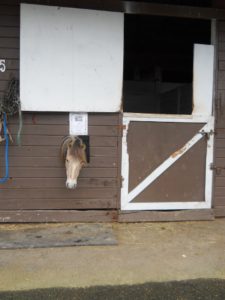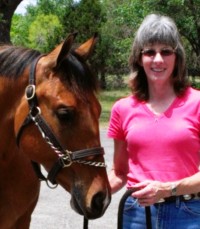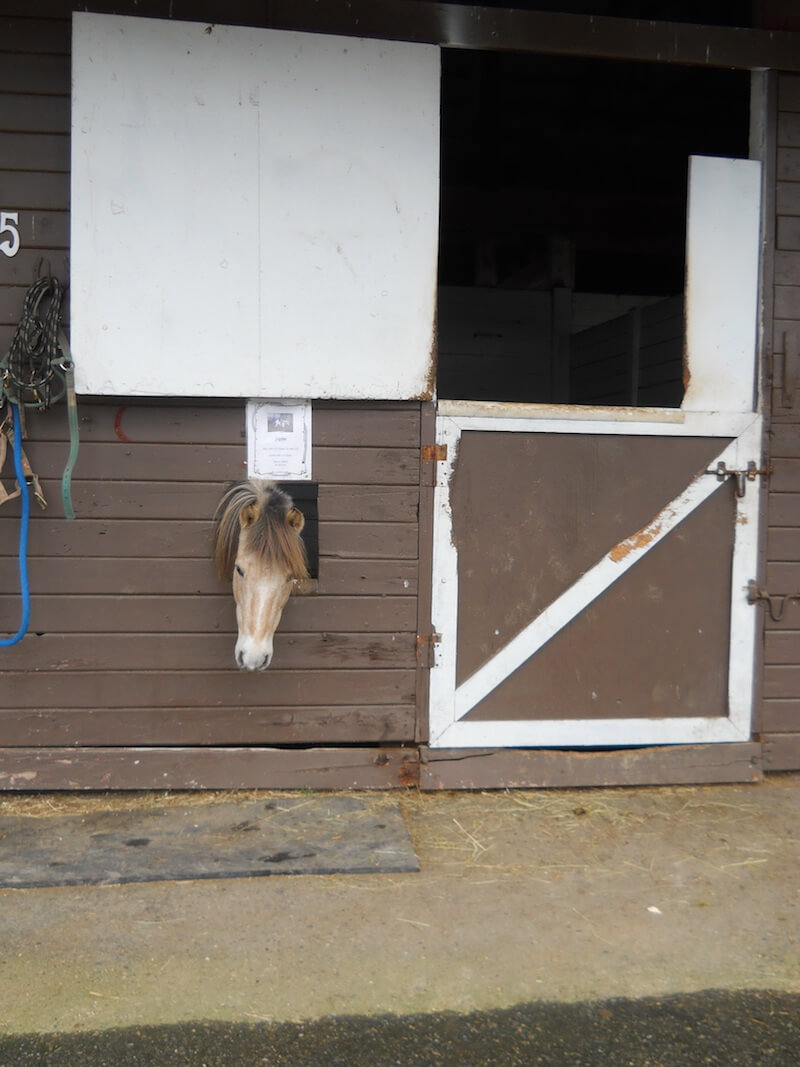How to Tell if Your Horse’s Coughing is Normal
by Eleanor Blazer

Coughing is a symptom. It can be caused by something as trivial as a little dust or as serious as an underlying medical condition. Regardless of the cause, a coughing horse stops time. Activity ceases as the afflicted horse is identified and observed. If all’s well, life goes on, but with a cautious eye on the horse – just in case.
Observation is the key to determining if the coughing horse needs a change in management, a visit from the veterinarian or no action. A one-time coughing episode is probably of no concern, but frequent coughs are red flags.
The horse that continues to cough needs to have his vital signs checked: an elevated temperature, heart or respiration rate is a sign of distress. A baseline of normal vital signs should always be available.
Illnesses that cause coughing and elevated vital signs can be caused by a bacterial or viral infection and will need the attention of a veterinarian. The horse will need rest and supportive care. Note the posture of the coughing horse. An outstretched neck or strange neck angle can be a sign of obstruction in the throat. Discharge from the nostrils that contain bits of feed may also be present. In this case, all feed should be removed and a veterinarian called.
When the coughing occurs can be a clue to the cause. If the horse coughs a few times at the start of exercise and then is fine, he’s probably just clearing some accumulated mucous. The handler should be aware of what is normal and make note if something changes. Coughing and breathing distress in summer or fall can be a sign of heaves: summer, pasture-associated Recurrent Airway Obstruction (RAO). Heat, humidity, mold and pollen worsen the condition. Removing the horse from pasture and keeping him in a low dust, well ventilated environment is needed.
Horses that cough and exhibit breathing problems when kept in dusty barns may have barn-associated RAO. These horses need to be removed from the barn and placed in a well ventilated area, free from dust and mold. All horses, whether they have RAO or not, should not be exposed to dust or mold. Prevention is paramount when it comes to managing the horse’s health. Avoid feeding dusty hay. Wet the hay before giving it to the horse. Do not offer hay in overhead hay racks. This is an unnatural eating position for the horse and does not allow nasal passages to drain. Overhead hay racks also allow dust and other particles to drop into the eyes. Horses also tend to bury their noses in the rack, exposing them to more dust.
When cleaning the barn always remove horses. Sweeping the aisle way or loading shavings into stalls makes unhealthy air quality and leaf blowers really stir up dust. Donning an inexpensive mask is highly recommended for the people doing the cleaning as excess dust is a hazard to us, too. Another way to cut down on barn-related dust is to avoid storing hay above stalls as dust filters down to the horses. If this can’t be avoided, remove the horses when a new hay delivery arrives and when throwing hay down for feeding.
It is rare, but horses can also acquire lungworms that cause coughing. Horses grazing on pastures with donkeys or mules (the natural host of the lungworm) can become infested with the parasite. Lungworms cause coughing as they migrate up the esophagus. De-wormers that contain ivermectin or moxidectin kill lungworms.
Strengthen your horse’s immunity and help avoid illnesses that cause coughing by keeping vaccinations up to date. In addition, maintain a good de-worming schedule. Don’t ignore a coughing horse – he may be trying to tell you something.
For information about caring for and feeding horses take the online courses “Stable Management” and “Nutrition for Performance Horses” taught by Eleanor Blazer. Earn certification or work toward a Bachelor of Science degree in equine studies. Go to www.horsecoursesonline.com for more information. Visit Eleanor’s web site at www.thewayofhorses.com
Published November 2013 Issue

Eleanor Blazer was raised training and caring for horses. She learned to ride and care for the horses her family bought and sold. Many of these horses required improved nutrition when they arrived for training. Eleanor’s experience and research has benefited both horses and horse lovers in the field of equine nutrition. An equine nutrition consultant, based in Bulverde, Texas, she keeps busy doing equine nutrition consultations, conducting seminars, and speaking to youth groups about horse care and nutrition. Eleanor is the author of the syndicated column The Way of Horses. She has more than 20 years experience helping and being a mentor to those wanting to know how to provide the very best care and nutrition for our special friend – the horse.






